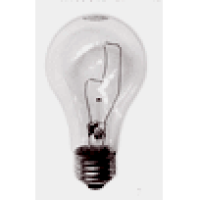**Investigating Psychological Theory: A Collection of Expert Suggestions**
In the ever-evolving realm of psychological research, theories are pivotal in guiding inquiries and interpreting human behavior. A recent Twitter discussion led by Ekaterina Damer has ignited significant interaction among psychologists, resulting in a wealth of suggested readings shared by experts in the domain. These suggestions offer crucial perspectives for both veteran researchers and those new to theoretical psychology.
Here are some key recommendations from this discussion, alongside their respective contributors:
– **Robert Cummins** examines various interpretations of psychological explanation in [“How does it work?” vs. “What are the laws?”](https://pdfs.semanticscholar.org/f5b1/b05e8313aee94ccd98e80eab3ec56dbd2c97.pdf) (Recommender: Iris van Rooij).
– **Ed Orehek** endorses an article that addresses challenges in theory construction within social personality psychology, available in the [Personality and Social Psychology Review](http://journals.sagepub.com/doi/abs/10.1207/s15327957pspr0802_1).
– **Gerd Gigerenzer** shares insights on theoretical frameworks in [“Personal Reflections on Theory and Psychology”](http://journals.sagepub.com/doi/abs/10.1177/0959354310378184), recommended by Djouria Ghilani.
– **Barry N. Markovsky’s** contributions can be examined through his [selected works](https://works.bepress.com/barry_markovsky/).
– **Paul Meehl**, who is often cited by Tal Yarkoni and others, has made significant contributions regarding theory testing and methodology in psychology, discussing topics such as the [“theory-testing paradox”](http://meehl.umn.edu/sites/g/files/pua1696/f/074theorytestingparadox.pdf) and [refining theories](http://meehl.umn.edu/sites/g/files/pua1696/f/147appraisingamending.pdf).
– **Robert I. Sutton & Barry M. Staw** clarify misconceptions in their piece, [“What Theory is Not”](http://haas.berkeley.edu/faculty/papers/stawtheory.pdf), recommended by Burak Tunca.
– **Valerie Gray Hardcastle** provides perspectives on theory development in cognitive science, noted by Joshua Skewes.
– **Randy McCarthy** highlights a vital chapter in Gawronski & Bodenhausen’s 2015 work regarding theory and explanation in social psychology.
– **Creative hypothesis generation** is examined by W. J. McGuire in an engaging Annual Review of Psychology article, suggested by Kimberly Quinn.
– **Daniël Lakens** points readers to Jaccard & Jacoby’s guide on theory construction skills tailored for social scientists.
– **Fiedler and Tom Stafford** discuss the interplay of theory formation and testing within their studies on psychological science methodology.
As evidenced by these recommendations, discussions about theory in psychology are as intricate and diverse as those concerning research methodologies. For individuals seeking deeper insights, Richard Prather proposes the article by Simmering et al. on modeling in developmental science, while Brett Buttliere encourages participation in a [Facebook discussion group](https://www.facebook.com/groups/153619768802306/about/) focused on psychological theory. Additional noteworthy contributions include Denny Borsboom’s work on [“Theoretical Amnesia”](http://osc.centerforopenscience.org/2013/11/20/theoretical-amnesia/), summarized by Michael P. Grosz, and Fiedler’s 2017 publication on identifying robust psychological science, recommended by Ivan Grahek.
This collection invites further contributions, serving as a valuable resource for comprehending contemporary psychological theory, its development, and its practical applications.
